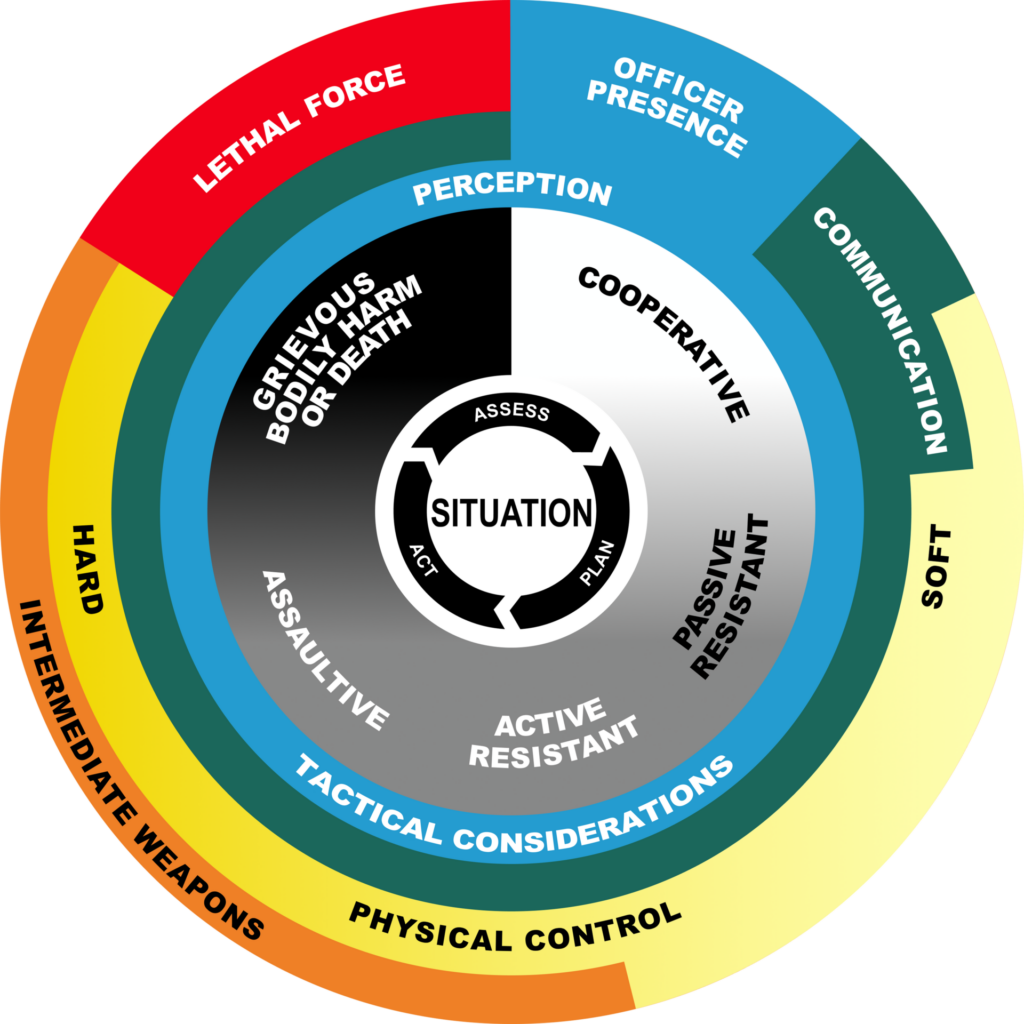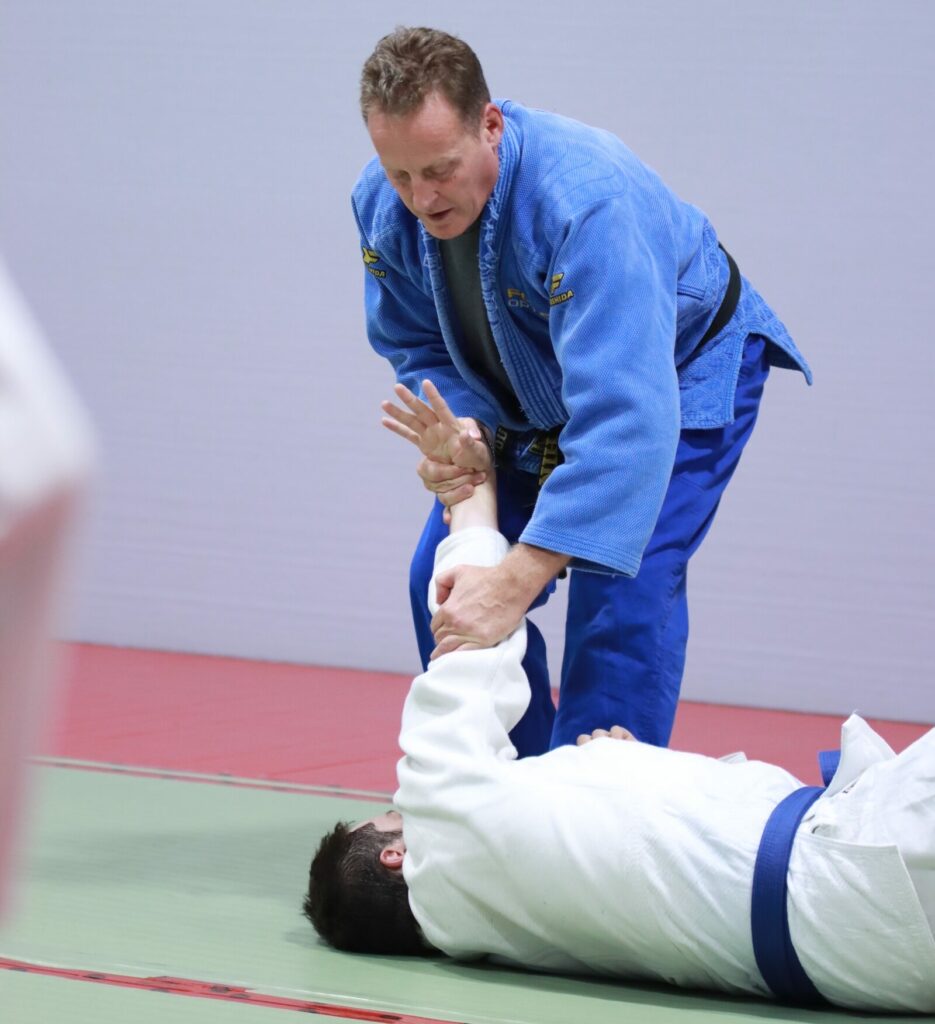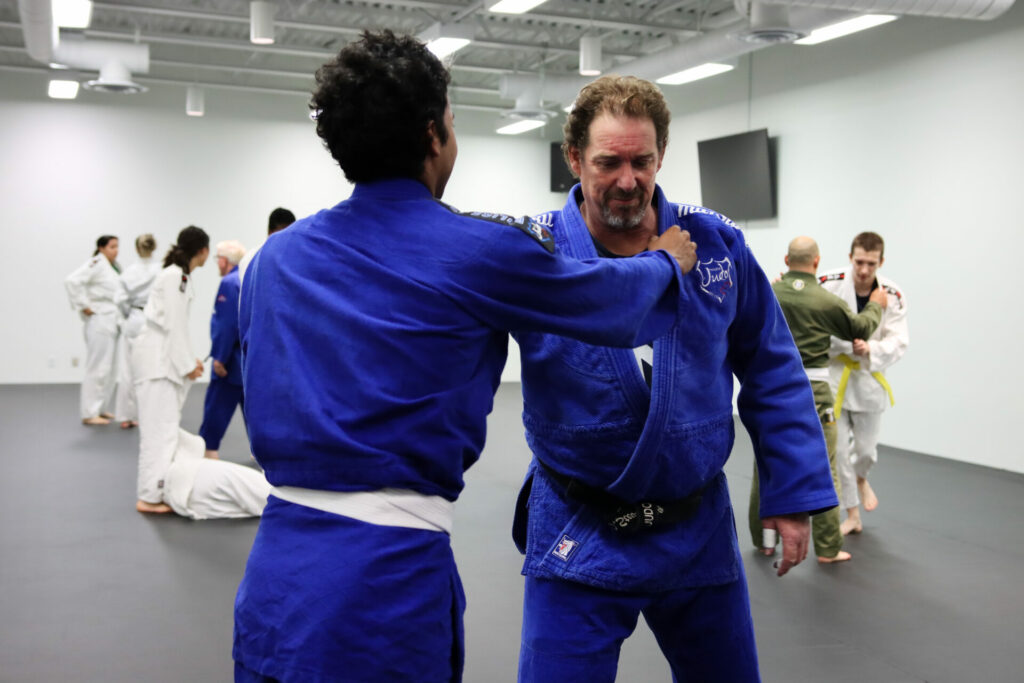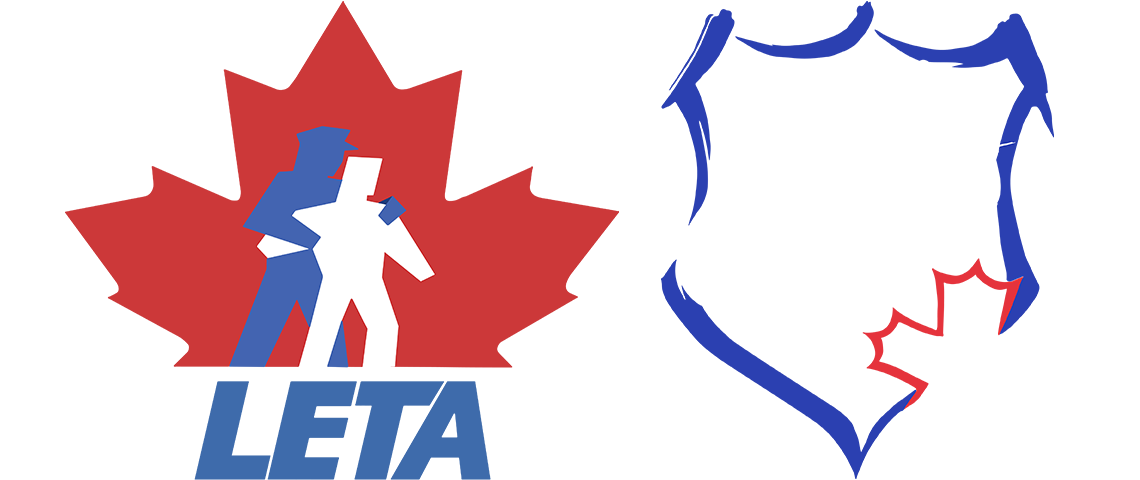About Police Judo
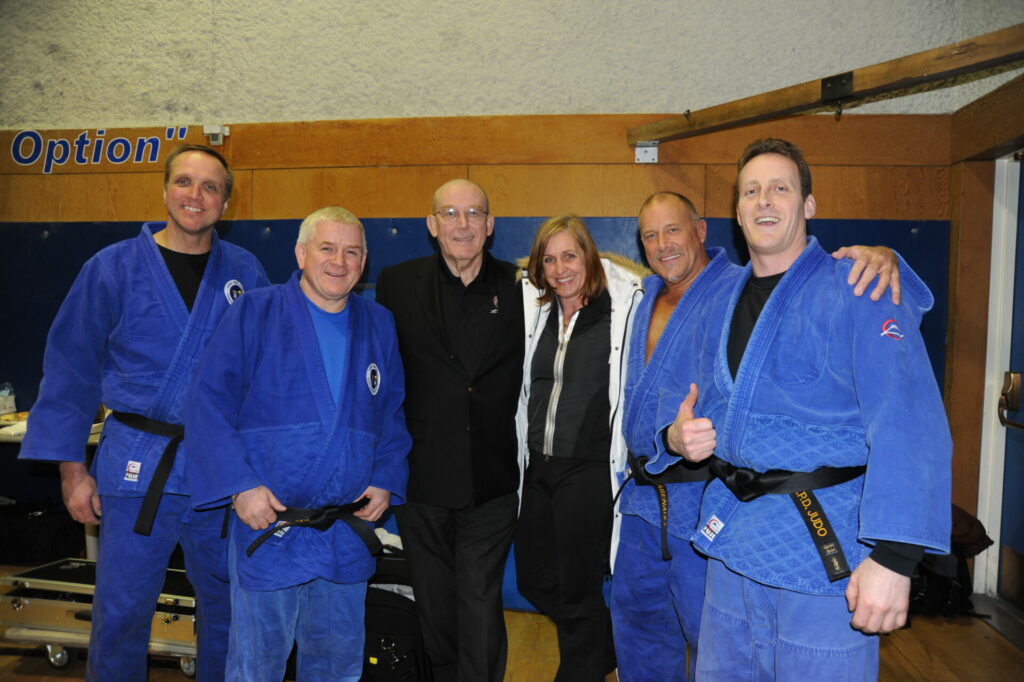
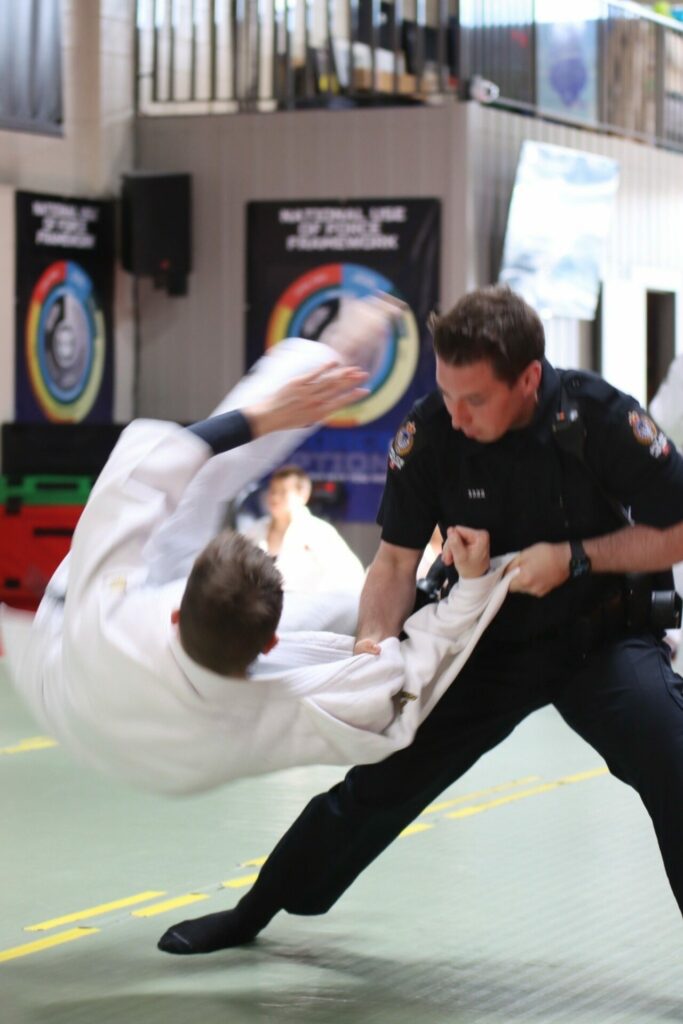
Core Values
Police Judo operates under the guiding core value of “Take Care of Your Partner”. This is imperative for law enforcement who have a duty of care for the people in their care.
What is Police Judo?
Police Judo is a recreational judo-based training program designed to help bridge the gap between sport and street. Police Judo combines the most suitable high-yield, low-risk judo techniques with control and force options tactics for the best physical training for law enforcement, functional fitness, as well as self-defence. Police Judo is designed to be assist students and applicants with their physical preparation for a career in law enforcement. It is also an ongoing training program that can help keep officers tactically sharp for the job, whether it is security, corrections, policing or other law enforcement professions. For those with no interest in law enforcement, Police Judo offers a fun and challenging martial arts training program with the underlying philosophy to “take care of your partner”. There are two Police Judo Clubs operating under the Law Enforcement Judo Association in BC.
Police Judo has been developed by law enforcement professionals who have decades of experience in use of force situations from the operational policing on the street, to work in correctional facilities. This is not a dojo-created training program developed by martial artists who have never put handcuffs on anyone, let alone testified on the application of their use of force. If you are training for law enforcement, make sure you know who you are training with and what their experience in policing and law enforcement is – outside of the dojo.
